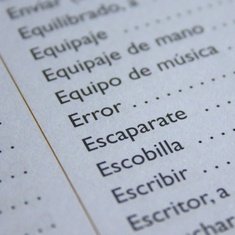Featured Quizzes
User Quizzes
Create Quiz
Data and Charts
Badges and Games
About JetPunk
JetPunk Shop
Dark Mode

Important theories in Linguistics
Save time by using Keyboard Shortcuts
Rate:
Last updated: February 28, 2024
You have not attempted this quiz yet.
More quiz info >>
| First submitted | February 28, 2024 |
| Times taken | 48 |
| Average score | 18.2% | Report this quiz | Report |
0:30
0
guessed
11 remaining
Time Used
00:00
Best Time
00:00
The quiz is paused. You have remaining.
Scoring
You scored / = %
This beats or equals
% of test takers
also scored 100%
The average score is
Your high score is
Your fastest time is
Keep scrolling down for answers and more stats ...
Objective Correlative
a group of things or events which systematically represent emotions.
Imaginative geography
Imaginative geographies [are] representations of other places – of peoples and landscapes, cultures and 'natures' – that articulate the desires, fantasies, and fears of their authors and the grids of power between them and their 'Others'.
Sprung Rhythm
Sprung rhythm is a poetic rhythm designed to imitate the rhythm of natural speech.
Mirror stage
The young child's identification with his own image
False conciousness
o address the scenario where a subordinate class willfully embodies the ideology of the ruling class.
Negative Capability
being in uncertainties, mysteries, doubts, without any irritable reaching after fact and reason.”
Trauma theory
attempts to understand the different ways by which traumatic occurrences are demonstrated, processed, exposed, and repressed throughout a variety of literary and historical texts.
Collective unconscious
the idea that a segment of the deepest unconscious mind is genetically inherited and not shaped by personal experience
Archetypal Criticism
Archetypal criticism is a literary theory that analyzes a text by focusing on recurring archetypes and myths.
Identity thinking
form of thinking which is the most expressive philosophical manifestation of power and domination.
Dialogism
a style of discourse in which characters express a variety of (potentially contradictory) points of view rather than being mouthpieces for the author
Carl Jung
Cathy Caruth
Edward Said
Friedrich Engels
GM Hopkins
Jacques Lacan
John Keats
Mikhail Mikhailovich Bakhtin
Northorp Frye
Theodore W. Adorno
TS Eliot
Correct!
Incorrect
You left this blank
1 Comments
Show comments >
frogfacts
+1
Level 16
May 5, 2024
Not a single one of these is a linguistic theory. Linguistic theories are things like Generative Grammar, X' Theory, Optimality Theory, Phase Theory, Bare Phrase Structure, the Farming/Language Dispersal Hypothesis, the Neo-Grammarian Principle, Lexical-Functional Grammar, HDPSG, Government and Binding Theory, Theta-Theory, Complex Dynamic Systems Theory, the Nostratic hypothesis, Distributed Morphology...
New and Popular
Save Your Progress
Copyright H Brothers Inc, 2008–2024
Contact Us | Go To Top | View Mobile Site
